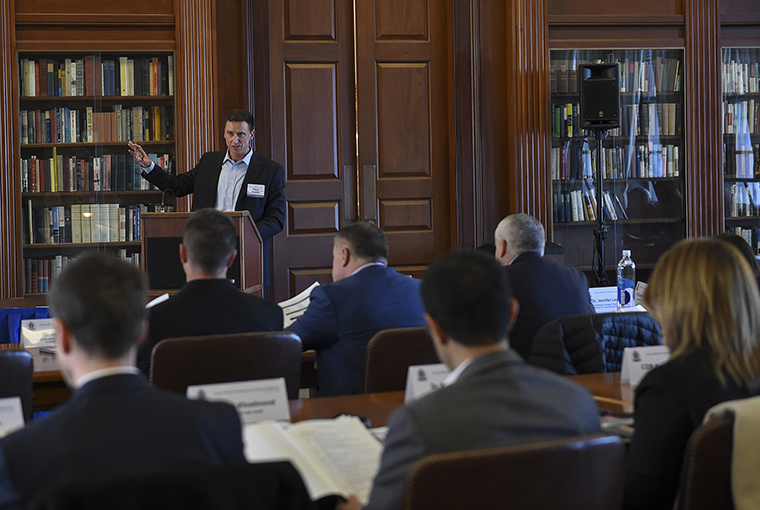Civilian-Military Humanitarian Response Workshop: August 2018

About this Event
Event Information
Public Affairs Office
This event is not open to the general public
This event is for students, faculty and staff and by invitation only.The Civilian-Military Humanitarian Response Workshop will be hosted by Brown University's Humanitarian Innovation Initiative (HI 2), the Harvard Humanitarian Initiative, and the U.S. Naval War College's Civilian-Military Humanitarian Response Program (HRP). The two-day workshop is the third in a series of workshops designed to explore current and future challenges in civilian-military humanitarian responses including natural disasters, complex emergencies and routine humanitarian engagements. Building on the two previous workshops, this event aims to improve civilian-military humanitarian responses by meeting the following four objectives:
- Enhance the response capacity of the United Nations Office for the Coordination of Humanitarian Affairs, USAID Office of US Foreign Disaster Assistance, humanitarian NGOs, Red Cross and Red Crescent Movement, international militaries, and other key organizations through supporting a community of practice in civilian-military issues and promoting information sharing that can inform policy and processes during humanitarian crises.
- Expand and strengthen a network of practitioners, academics and leaders who routinely work civilian-military engagement in the humanitarian space.
- Continue to highlight key opportunities for professional education, training and development for key decision makers to identify the best practices associated with overcoming cultural, policy, technical and legal challenges for coordination and information sharing.
- Develop and refine a comprehensive research agenda focused on civilian-military coordination considering international approaches to effecting solutions.
Participants will spend time in one of seven working groups examining key areas of civilian-military engagement in the humanitarian space:
- Civil-military coordination in humanitarian response
- Corruption in humanitarian response
- International humanitarian law
- Urbanization
- Climate change and sea level rise
- Information communication technologies
- Pandemics
Most Recent
8:00 a.m.
U.S. Naval War College, 686 Cushing Rd, Newport, RI 02841
U.S. Naval War College, 686 Cushing Road, Newport, RI 02841
U.S. Naval War College, 686 Cushing Road, Newport, RI 02841
8:00 a.m.
U.S. Naval War College, 686 Cushing Road, Newport, RI 02841
U.S. Naval War College, 686 Cushing Rd, Newport, RI 02841
